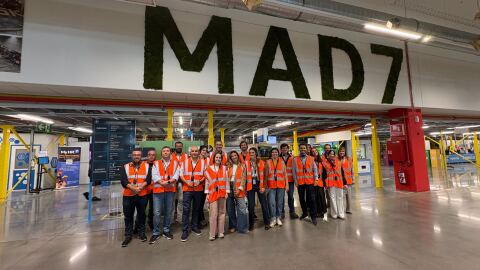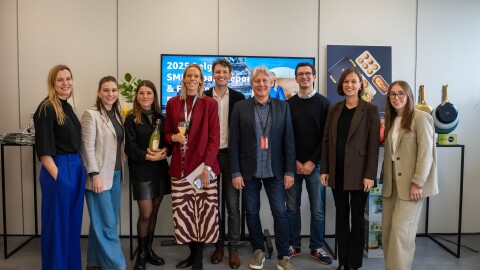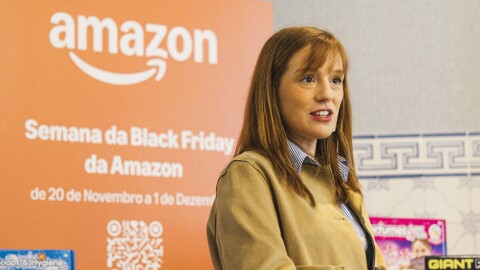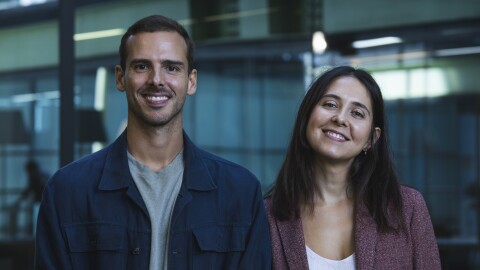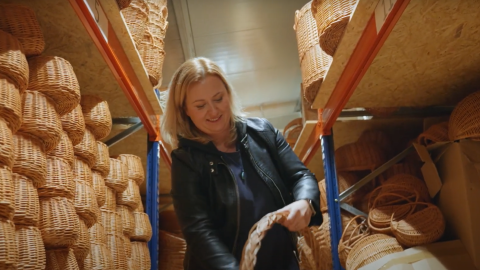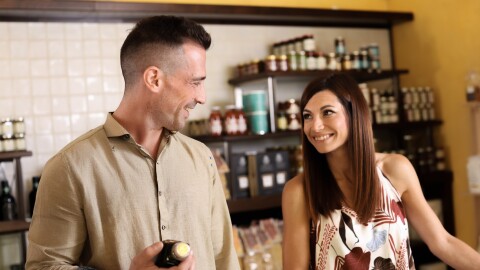The Amazon Launchpad Sustainability Accelerator (ALSA) was created through a joint initiative between Amazon and Climate KIC (Knowledge and Innovation Community). Climate KIC is supported by the European Union's EIT (European Institute of Innovation and Technology), and is Europe's leading center for sustainable innovation.
ALSA is aimed exclusively at early-stage startups that offer physical products that make it easy for customers to make their purchases more sustainable. The products must show a measurable improvement in at least one sustainability area, including recyclability and sustainability of materials used in production.
For the first edition of the Start-Up Accelerator ALSA, there were over 1,300 applications across Europe, from which 12 start-ups from four countries made it to the selection and went through the three-month program. One of them is Peachies, founded by young Austrian Rima Suppan and American Morgan Mixon, and has a big vision: they want to revolutionize the market for diapers and baby products. Peachies is about to launch in the UK, and there are already expansion plans as well. We spoke with Rima and asked her how she and her business partner experienced ALSA and what the two were able to take away for their newly-founded company.
Clear focus on sustainability from the start
Sustainability has long been a focus for founders Rima and Morgan. Rima tells how the founding of Peachies came about back when she was just 23 years old. "I come from a family of entrepreneurs - our Sunday brunch sometimes resembled a board meeting. So it was always clear to me that I wanted to start my own business one day. I then studied at the Vienna University of Economics and Business, and took 'Innovation & Entrepreneurship' at Imperial College London." While studying for her master's degree in London, Rima met her fellow student and now business partner Morgan. Rima says, "A big thing we had in common from the beginning was our commitment to sustainability, which we wanted to implement in an entrepreneurial way."
Versatile support for sustainability pioneers
All companies that participated in the ALSA start-up program received support in various areas over a total period of 12 weeks. This included financial support, ongoing supervision by recognized experts, and a bespoke curriculum tailored to the needs of each company. The start-ups also had access to rooms in the Amazon office in London for the entire duration of the program. Now they benefit from free access to Amazon Launchpad, valid for one year.
Participants traveled regularly to Amazon's London headquarters for workshops and presentations. Rima says, "Each week, different experts were on hand to answer questions. In the process, we were able to take something away from all the workshops, and each talk inspired us in a different way." The companies were each accompanied by two consultants for the entire period. Together with them, goals were defined at the beginning that were to be achieved in the program. "One of our first steps was to define our unique selling proposition and communicate it in the best possible way, because sustainability is not the only reason for consumers to switch brands. To do this, we talked to several hundred families and tested our products in blind tests over a period of weeks," Rima explains.

Working together in the co-working space quickly bonded the participants, "much like university," says Rima. "We all had our ups and downs during the three months. Encouraging each other helped us along the way. Looking back, ALSA was a once-in-a-lifetime opportunity and a real gamechanger for us." The fact that only sustainable consumer brands participated in the program meant that they all faced similar issues. These included supply chain issues, customer experience, and finding appropriate staff. "When calculating our carbon footprint, for example, the Climate KIC's experts helped us enormously. For our Peachies nappy, we were able to demonstrate CO2 savings of over 93kg per baby per year compared to traditional diapers."
Revolutionizing an entire industry
The idea for the perfect diaper came to the entrepreneurs through their environment, Rima says. "We are surrounded by friends and families who are becoming parents for the first, second or third time. We've seen not only how exhausted these young parents are, but also their motivation to consume more sustainable products. It was clear to us that poor product quality in diapers leads to a lot of frustration, especially with sustainable versions that leak regularly, especially at night. So it was clear to us that we had to develop something better."
An analysis of the diaper market encouraged Rima and Morgan in their plan: "The market hasn't changed much since the 1980s. Most importantly, we saw that there was no product that combined all the requirements for a perfect diaper, so we took this into our own hands." The two also see great potential in the online subscription model, as diapers have largely been an offline market in stationary retail.
The focus of an ideal diaper is clearly on function, Rima explains. "Peachies is a super-absorbent nappy that is also environmentally conscious. We use only the highest quality materials and keep our diapers free of harmful chemicals, fragrances and dyes. We rely on 100% renewable energy in our production. Our diapers are for parents who want a more sustainable product, but still want the same functionality. Our product vision is to bring a 100% degradable diaper to market that parents can rely on first and foremost."
Demo Day as the crowning achievement of a joint success story
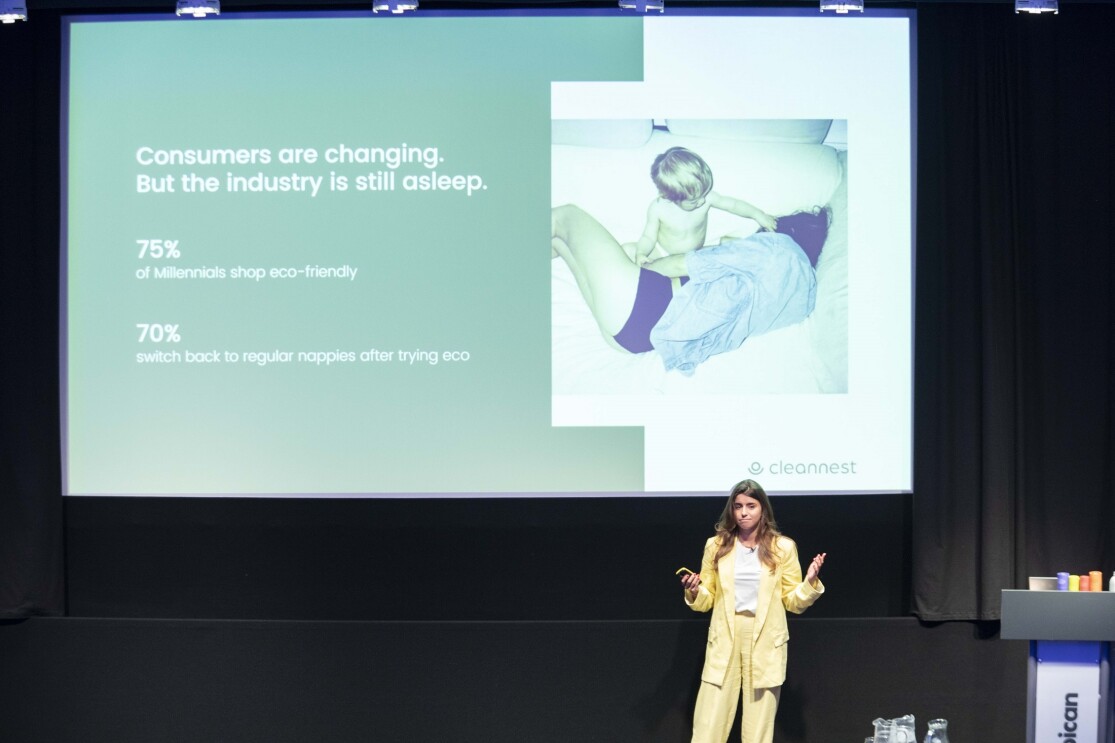
The first edition of ALSA came to a close in summer with Demo Day, which gave the participating companies another chance to network. "All ALSA participants had the opportunity to pitch their concept to a large audience of over 500 people in total, on-site and via livestream. A large number of investors, sustainability experts and opinion leaders attended the event, which allowed for valuable networking once again," Rima says. Peachies will enter the market in April 2023 and start selling online. Until then, however, you can already get a first glimpse and test the product themselves by registering at https://wearepeachies.com/.





